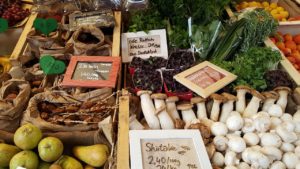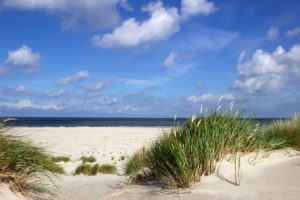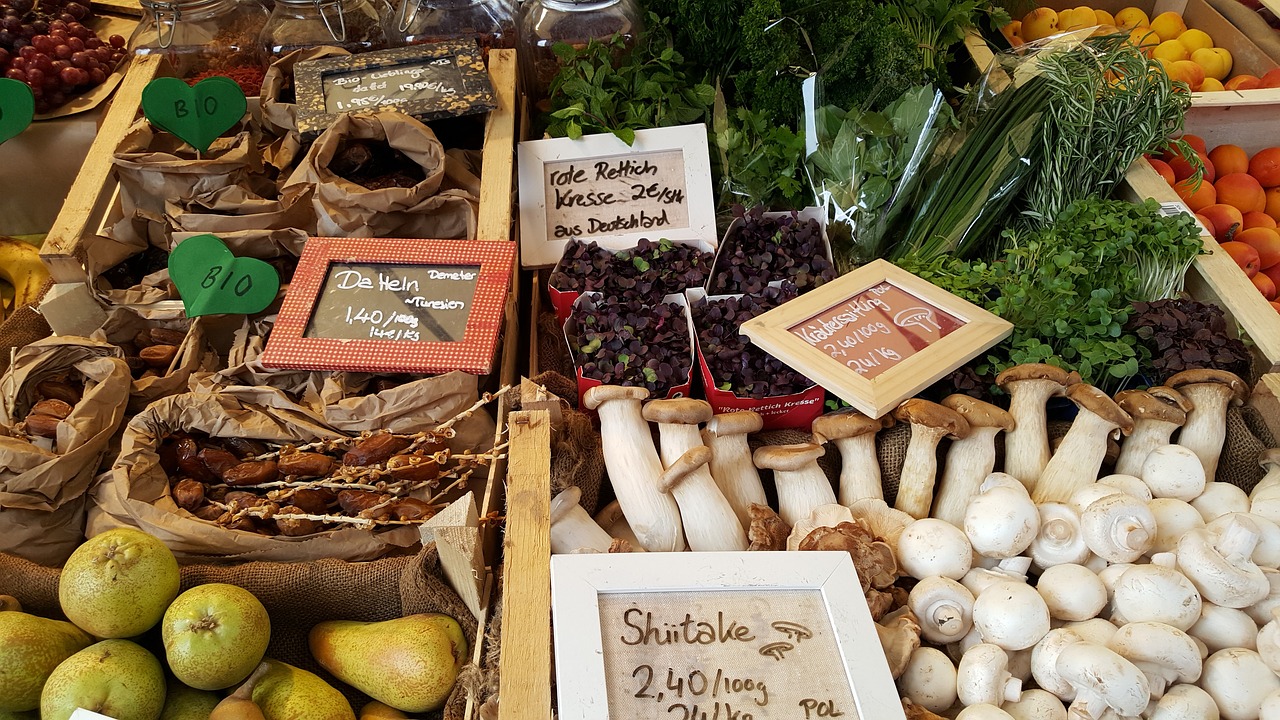Being more eco-friendly is something many people think about nowadays because we understand the huge impact our behaviour can have on our environment. Being eco-friendly while travelling can be extremely difficult because you are not in your usual surroundings. Here are 5 ideas for how you can lessen your impact on the environment while staying in Rostock. Just suggestions, and of course you don’t have to include everything. Just do what is manageable and affordable in your situation. Every little bit helps.
- Take public transport
Let’s be honest, the eco-friendliest way of getting around is obviously walking. Rostock is a rather small city, so technically it is possible to walk to a lot of places, but it will take some time. If you don’t like walking, you can also rent a bike. Definitely check out elronex; they have different stations all over Rostock, or the Fahrradverleih Warnemünde to rent a bike at Warnemünde.
Another good way to get around, is public transport. In general, public transport in Rostock can get you to any place at (nearly) any time. And they also have an app for smartphones or tablets. There, you can get information about how to get somewhere and also the latest information about delays, etc. So in the end, you don’t really need a car to get around Rostock. And apart from all these options being more eco-friendly than renting a car, driving a car in Rostock, especially during rush hour (between 6—8am and 3—5pm), can drive you nuts.
If you really have to go by car, think about car sharing. While Uber unfortunately isn’t really a thing in Germany, car sharing luckily is. Check out BlaBlaCar, to find nice people who have a place left in their car and could give you a lift for just a small amount of money.
- Take your own bags
When shopping, remember to take your own bag or backpack with you. If you don’t have one, you can easily get a Jutebeutel (tote bag) at every German supermarket to carry your shopping.
But if you ever find yourself at a supermarket without a bag and don’t want to buy another reusable one, think about taking a paper instead of a plastic bag. Here’s another motivation for you to take you own bag: in German supermarkets and shops, unlike some other European countries, you have to pay for plastic and paper bags. And, let’s be honest, those plastic and paper bags are not very durable, so you probably won’t use them again. Actually, on average plastic bags are used for only 25 minutes! So think about getting yourself a nice reusable on, maybe with a beautiful pattern. You will definitely take more care of this one than of any disposable bag.
Ever thought about doing the same with your veggies? Instead of putting your veggies and fruits in those disposable plastic bags, you could buy produce bags (e.g. at Edeka or denn’s), which you can use over and over again. Of course they weight a little bit more than plastic bags, so you may end up paying a few cents more (because you mostly pay per gramm), but as we say in Germany: Das macht den Kohl auch nicht mehr fett!
- Buy plastic free and local
When you go shopping for food, try to go for the plastic free options, especially as regards fruits and vegetables. A great option to avoid plastic packaging is going to the farmer’s markets in Rostock, which takes place at different places and on different days. One is every day, except Sundays, at Neuer Markt.

At farmer’s markets, you can get nearly everything loose, plus people will almost always agree to put the fruits and vegetables in your own bags. If you don’t have a bag, they often can at least offer paper instead of plastic bags. Also try to buy local foods, to avoid long shipping ways. Image, traveling all the way to Germany, just to buy fruits from your own country. Why not try something local.
Just keep in mind that it can be slightly more expensive at the farmer’s market compared to a supermarket. Click here to find out the times and places.
- Avoid “tourist-shopping“
Shop mindfully and try to not buy things just because you are on holiday. It is always tempting to go bananas, shopping on holiday because you have the time and feel like you could treat yourself with something nice. But before buying something, think about whether you really need or will use that thing again when you are at home or whether it will still spark joy in you later on. Also, avoid shopping at stores like H&M or tiger, because you probably have those at home, too. And also, you want to see something new, right?
If you really want to buy a souvenir, think about buying locally. There are nice small shops and sometimes also market stands at the farmer’s market who sell locally produced goods. In this way, you not only get something more unique, you will also be supporting smaller local businesses.
- Stick to your path
Sometimes it can be good to not keep to the beaten track, but in this cases it is not. If you go to the beach or into a forest, stick to the path. Please don’t wander around on your own. Mecklenburg-Vorpommern has some beautiful places to enjoy.

One example are the dunes. There are numerous reasons why you are not aloud to go onto the dunes (apart from the designated paths): they are a part of coastal protection, helping to prevent flooding. If people would be allowed to walk around on them, they could get damaged. And that’s why it is also possible that you may have to pay a fee if someone sees you walking onto them. By sticking to the designated path, you avoid disturbing or even destroying the local fauna and flora.

